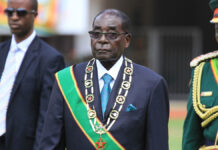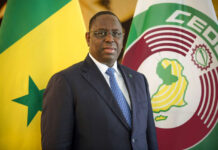The World Economic Forum for Africa, currently taking place in Cape Town, South Africa focuses on the theme of shaping inclusive growth and shared futures in the Fourth Industrial Revolution. Key to this growth, and for African economies to make the most of their opportunities and streamline cross border trade, is the development of infrastructure across the continent. As a result, in jurisdictions across the continent, new laws are being implemented and alternative sources of infrastructure funding are being sought in order to kick-start direly needed infrastructure projects.
China has played a key role in providing alternative sources of financing to countries in Africa that have not been able to access funding in more traditional ways. The benefits have been numerous, but African countries are also concerned about their growing dependence on China. Research released in 2018 from Baker McKenzie and IJGlobal (research) with data drawn exclusively from fully financed projects and excluding recent announcements of government funding commitments, shows that the value of loans from Chinese financing of energy and infrastructure projects in Africa almost trebled between 2016 and 2017, from $3 billion to $8.8 billion..
“As China’s Belt and Road Initiative (BRI), a multi-billion dollar plan to link Asia, Europe and Africa, is actively being implemented, we expect this amount will increase even further,” says Wildu du Plessis, Head of Banking & Finance at Baker McKenzie in Johannesburg.

As one of South Africa’s largest trading partners, China plays an important role in infrastructure investment in this country too. At the BRICS Energy Summit in 2018, China pledged to invest USD 14.7bn in South Africa and to grant loans to state owned enterprises Eskom and Transnet.
Du Plessis notes that even though the South African infrastructure funding gap is not as severe as other countries in Africa, there is still a difficulty in mobilising funds for infrastructure development and related projects because traditional funders take time to decide on whether to get involved.
Shirley Wang, Partner in the Beijing Office of Baker McKenzie, notes, “As part of the mobilisation of different sources of funding to fill the infrastructure gap, there is a big bucket of Chinese funding that can be used for infrastructure projects in Africa. The increasing appetite from China for funding infrastructure projects as part of its BRI means they are happy to partner with local development finance institutions and other international funders. China’s investments toward BRI countries and regions will continue to be active in the future.”
“A key attraction of the BRI for both African governments and project sponsors is that it assists the speed of project implementation. Project stakeholders advise that the whole process is a lot quicker than other options.”
However, du Plessis says that there is also a rising concern amongst African sovereigns who are worried about the long-term effects on their dependence on China.
“This is even though China has reiterated that it wants to be considered a responsible investor in Africa. It remains to be seen whether this concern has an impact on Chinese involvement in the funding infrastructure projects in future years. African countries have also begun building capacity to correct the imbalance between borrowers and lenders in the negotiation phase so that more balanced agreements can be reached,” he explains.
When it comes to assessing the BRI’s impact on North African countries, Kamal Nasrollah, Partner and Head of Baker McKenzie in Casablanca, says that traditionally, the North African markets have been closely correlated with European (especially France, Spain, and Germany) and US markets, as well as some Asian markets (for example Japan). The BRI has allowed recipient countries to not have to depend on traditional investors and to benefit from China’s growth. Though limited for now, Chinese influence in North Africa may grow remarkably in the coming years, although some are concerned that the American and European relationships with the region will suffer as a result.
“While all North African nations are part of the BRI project, the benefits received from this initiative vary. In some countries, such as Tunisia, the BRI is still in study phase, while in some others, primarily Algeria and Morocco, some infrastructure projects have already been implemented.”
Nasrollah says that Algeria has perhaps the closest ties to China in the region. One of key infrastructure projects to be signed in Algeria recently is the US$ 6Bn project for the exploitation of phosphate in the eastern region of Algeria. In Morocco, Chinese companies financed and have been building the multi-billion Noor 2 and Noor 3 solar parks near Ouarzazate, which is 100km south-east of Marrakesh. Other initiatives include a US$ 10Bn Chinese-funded industrial city in Tangier, which is intended to give Beijing access to a tech hub next to one of Africa’s most dynamic ports.
…
[Message clipped] View entire message













